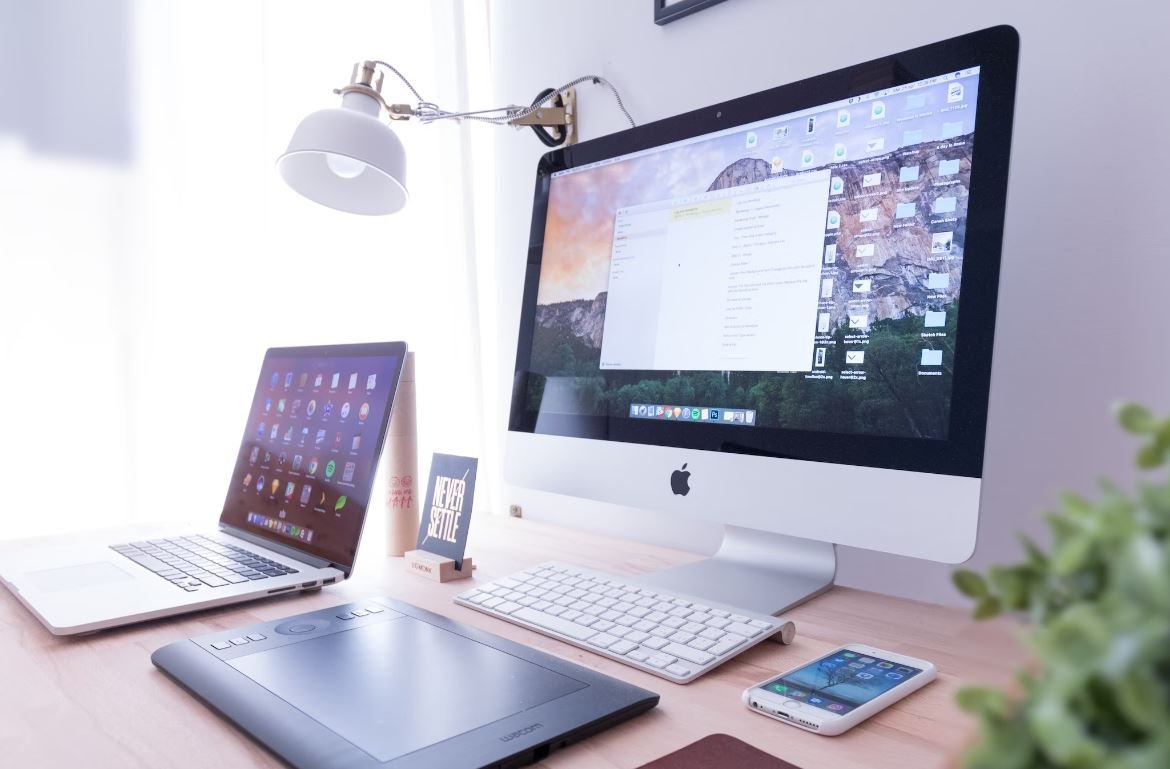Podcast Audio Editing Free
Podcasts continue to grow in popularity as a way to consume content, and to create a successful podcast, it’s important to have high-quality audio. While professional audio editing software can be expensive, there are free alternatives that can help you achieve great results without breaking the bank. In this article, we will explore some of the best free tools available for podcast audio editing.
Key Takeaways:
- There are several free audio editing tools available for podcast production.
- Using a digital audio workstation (DAW) can provide more advanced editing capabilities.
- Free plugins and effects can enhance the sound quality of your podcast.
- Exporting to popular audio formats ensures compatibility with podcast platforms.
Choosing the Right Free Audio Editing Software
When it comes to podcast audio editing software, there are many options to consider. Audacity is a widely used and highly regarded free audio editing program that offers a range of features for podcast production, including multi-track recording, noise reduction, and level normalization. *Even though it is free, Audacity provides professional-grade editing capabilities.* Other popular free options include GarageBand (for Mac users) and Ocenaudio.
Utilizing Digital Audio Workstations (DAWs)
Digital audio workstations (DAWs) are more advanced audio editing tools that offer additional features and capabilities. While some DAWs can be quite expensive, there are free versions available that can still provide professional results. *Reaper, for example, offers a fully functional evaluation version that never expires, making it an attractive option for those on a budget.* DAWs like Reaper provide a higher level of control and precision, making it easier to create a polished final product.
Free Plugins and Effects
Plugins and effects can greatly enhance the sound quality of your podcast. Many free plugins are available for a wide range of audio editing software. Some popular plugins include EQs (equalizers) for sound shaping, compressors for dynamic control, and reverb and delay effects for adding depth and space to your audio. *Experimenting with different plugins and effects can add creativity and uniqueness to your podcast’s sound.*
Exporting to Popular Audio Formats
Once you have finished editing your podcast, it’s important to export the file to a format that is compatible with podcast platforms. MP3 is the most widely used audio format for podcasts, as it offers good quality and small file sizes. Other formats such as AAC or OGG may also be supported by some platforms. *Check the requirements of the podcast platforms you plan to publish on to ensure compatibility.*
Comparison Table: Free Audio Editing Software
| Software | Supported Platforms | Key Features |
|---|---|---|
| Audacity | Windows, Mac, Linux | Multi-track recording, noise reduction, level normalization |
| GarageBand | Mac | Virtual instruments, audio recording, built-in effects |
| Ocenaudio | Windows, Mac, Linux | VST plugin support, real-time preview, spectrogram view |
Conclusion
Creating a podcast with high-quality audio doesn’t have to be expensive. With the variety of free audio editing tools available, anyone can achieve professional results. Whether you choose Audacity, GarageBand, or a DAW like Reaper, there are options to suit every level of skill and budget. By utilizing free plugins and effects, you can further enhance the sound quality of your podcast. Remember to export your podcast in a compatible format to ensure a smooth publishing process. Start experimenting with these free tools today and take your podcast to the next level!
References
- https://www.audacityteam.org/
- https://www.apple.com/mac/garageband/
- https://www.ocenaudio.com/
- https://www.reaper.fm/

Common Misconceptions
Podcast Audio Editing
When it comes to podcast audio editing, there are several common misconceptions that people have. These misconceptions often lead to misunderstandings and can hinder people from taking advantage of the benefits that podcast audio editing offers. It is important to debunk these misconceptions in order for podcasters to fully understand the value of audio editing in their podcasting journey.
- Podcast audio editing can be time-consuming and tedious.
- Podcast audio editing is only necessary for professional podcasters.
- Podcast audio editing requires expensive software and equipment.
First Misconception
One common misconception is that podcast audio editing can be time-consuming and tedious. While it is true that editing audio can be a detailed process, there are now many user-friendly editing software and tools available that can significantly streamline the editing process. With the right software, podcasters can easily cut out mistakes, add music or sound effects, and enhance the overall audio quality, saving time and effort.
- There are user-friendly audio editing software with intuitive interfaces.
- Efficient editing techniques and shortcuts can be learned to enhance productivity.
- Outsourcing the audio editing to professionals is an option for time-constrained podcasters.
Second Misconception
Another misconception is that podcast audio editing is only necessary for professional podcasters. In reality, audio editing can benefit podcasters of all levels, whether they are beginners or experienced professionals. Editing allows podcasters to remove background noise, adjust audio levels for consistency, and polish their episodes to provide a more engaging and enjoyable listening experience for their audience.
- Editing can help correct audio issues commonly faced by beginners.
- Professional editing can elevate the quality and professionalism of a podcast.
- Editing allows for creativity in storytelling and content delivery.
Third Misconception
Lastly, there is a misconception that podcast audio editing requires expensive software and equipment. While there are professional-grade tools available at higher price points, there are also free or affordable editing software options that provide excellent editing capabilities. Many podcasters have successfully edited their audio using these more budget-friendly options, proving that quality editing is accessible to all podcasters, regardless of their budget.
- Open-source and free audio editing software can be used without compromising quality.
- A decent microphone and headphones are all that’s needed for basic audio editing.
- Cloud-based editing tools offer convenience and accessibility without the need for high-end equipment.

Introduction:
Podcasting has become an increasingly popular medium for sharing knowledge, stories, and entertainment. One crucial aspect of podcasting is audio editing, which can greatly enhance the listening experience. In this article, we explore ten fascinating insights that shed light on the world of podcast audio editing.
The Rise of Podcasting:
With the advent of smartphones and audio streaming services, podcasts have experienced tremendous growth in recent years. Let’s delve into some intriguing statistics regarding the popularity of podcasts:
Podcasts Listenership by Age Group:
Understanding the demographic breakdown of podcast listeners can help podcast creators tailor their content to specific age groups. Check out the percentages of podcast listeners by age group:
The Impact of High-Quality Audio Editing:
Well-crafted audio editing can significantly enhance the overall quality of a podcast. Here, we present some remarkable data on the positive effects of professional audio editing:
Popular Audio Editing Softwares:
Various software tools exist to aid podcasters in refining their audio content. Let’s take a look at the most widely used audio editing software:
Cost of Audio Editing Services:
While some podcasters possess the skills to edit their audio, others choose to outsource this task to professionals. Here’s an overview of the average cost associated with audio editing services:
Top Podcast Categories:
The topics covered in podcasts are as diverse as the human experience itself. Let’s explore the most popular podcast categories based on listenership:
Podcast Episode Length:
Podcast creators can determine the ideal episode length based on audience preferences. Consider these statistics on the average duration of podcast episodes:
Top Podcasting Platforms:
Podcasts can be found on various platforms, each with its own unique features and benefits. Find out the most popular platforms for podcast consumption:
Podcast Revenue Generation:
Podcasters can monetize their shows through various avenues, providing opportunities for sustainable growth. Take a look at the different methods of revenue generation within the podcasting industry:
Increasing Listener Engagement:
Beyond audio editing, podcasters aim to engage with their audiences and build a loyal community. Discover effective strategies to enhance listener engagement:
Conclusion:
Podcast audio editing plays a pivotal role in captivating listeners and fostering a memorable experience. From understanding listener demographics to finding the right software, each aspect contributes to the success of a podcast. By keeping these insights in mind, podcasters can embark on an exciting journey of sound storytelling, nurturing a devoted audience along the way.
Frequently Asked Questions
Question: Can I find free podcast audio editing software?
Yes, there are several free podcast audio editing software options available. Some popular ones include Audacity, GarageBand (for Mac users), and WavePad.
Question: What are the key features to consider when choosing podcast audio editing software?
When selecting podcast audio editing software, it’s important to consider features such as multi-track editing capabilities, built-in sound effects and filters, noise reduction tools, audio normalization, and exporting options.
Question: How long does it typically take to edit a podcast episode?
The time it takes to edit a podcast episode can vary depending on factors such as the length of the episode, the complexity of the editing required, and your level of experience. On average, it may take a few hours to edit a one-hour episode.
Question: Can I edit a podcast episode on my mobile device?
Yes, there are podcast audio editing apps available for mobile devices, which allow you to edit episodes on the go. Some popular mobile editing apps include Ferrite Recording Studio (iOS) and Lexis Audio Editor (Android).
Question: What are some tips for improving the audio quality during editing?
To enhance the audio quality during editing, ensure you have a good recording environment, use a quality microphone, remove background noise, adjust the levels to avoid clipping, apply equalization and compression, and utilize noise reduction filters.
Question: How can I blend multiple audio tracks together in a podcast episode?
You can blend multiple audio tracks together in a podcast episode by using the multi-track editing feature in your chosen audio editing software. This allows you to overlay different elements such as music, sound effects, and voiceovers to create a cohesive final product.
Question: Can I edit out mistakes or pauses in a podcast recording?
Yes, you can edit out mistakes or pauses in a podcast recording by using the cutting or trimming tools in your audio editing software. This allows you to remove unwanted sections while maintaining a smooth flow.
Question: Is it possible to add music or sound effects to my podcast episodes?
Absolutely! Adding music or sound effects to your podcast episodes can be done easily using audio editing software. Look for tools that allow you to import and manipulate additional audio files.
Question: Are there any free resources available to learn podcast audio editing?
Yes, there are numerous free resources available to learn podcast audio editing. You can find video tutorials on platforms like YouTube, blogs with step-by-step guides, and even online courses specifically designed for beginners.
Question: Can I undo changes in podcast audio editing software?
Most podcast audio editing software includes an “Undo” feature, which allows you to revert any changes you’ve made. This feature helps you correct mistakes or experiment with different edits without permanently altering your original audio files.


Leave a Reply